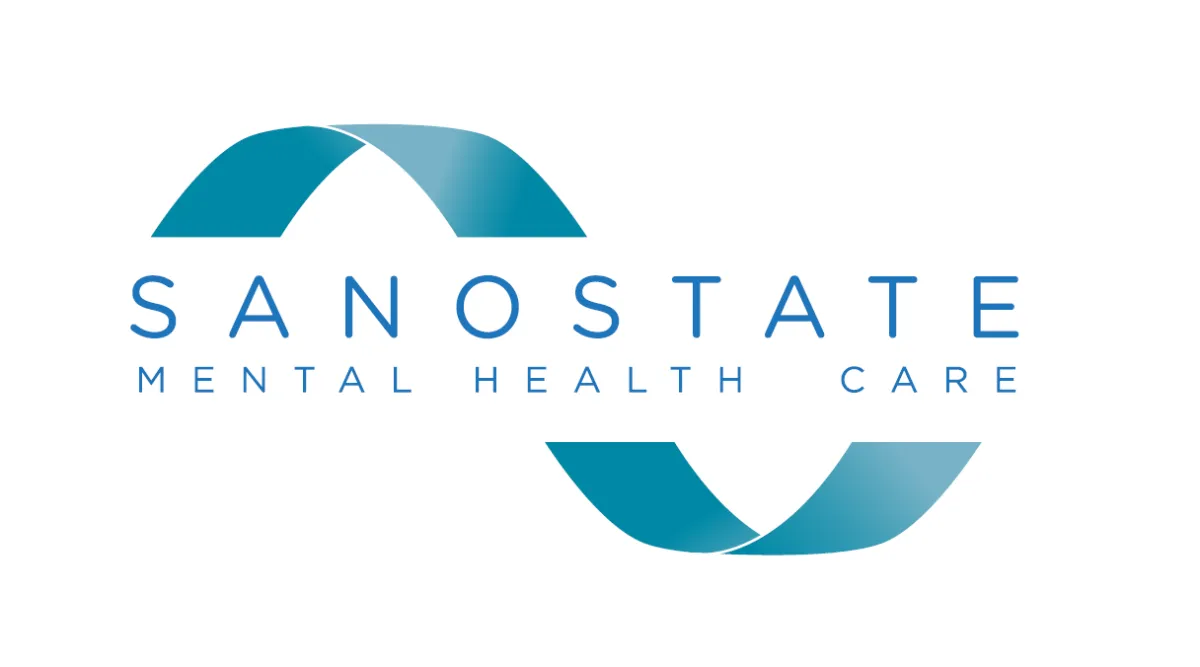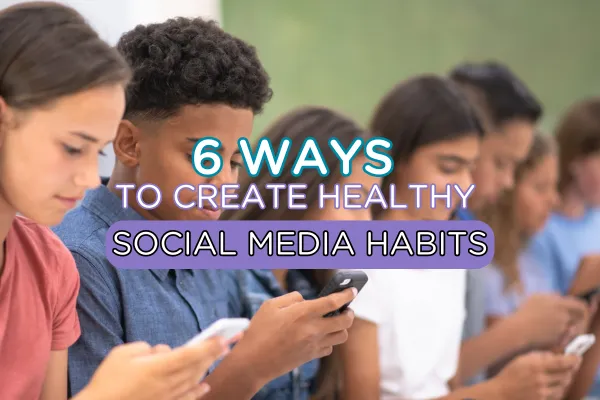General Inquiries: (587) 333-6349 - info@sanostate.com



6 Ways to Create Healthy Social Media Habits
“Remember, social media platforms are designed to keep you there as long as possible” - Dr. Blake Ausmus
Alright, be honest with yourself… How many hours do you spend on social media each day? Now that you’ve come up with a number in your head, I dare you to check your phone to see how accurate your guesstimate is.
iPhone users:
Open the Settings app on your iPhone.
Scroll down and tap on "Screen Time."
Tap on "See All Activity" under the "Screen Time" graph.
Scroll down to the "Social Networking" section to see how much time you've spent on social media apps such as Facebook, Instagram, and Twitter.
Android users:
Open the Settings app on your Android phone.
Scroll down and tap on "Digital Wellbeing & parental controls."
If you haven't set up Digital Wellbeing, you'll be prompted to do so now. Follow the on-screen instructions to set it up.
Once you've set up Digital Wellbeing, tap on "Dashboard."
You should see a list of your most-used apps, including social media apps like Facebook and Instagram. Tap on any app to see how much time you've spent on it.
Instead of a guilt trip, let’s consider how we can get value out of these hours!
It is estimated that the average person sees between 6,000 to 10,000 advertisements each day. To help understand the frequency, the next time you are on social media, count how many posts are advertisements. I counted 1 in 3 as paid-for ads.
Remember, social media platforms are designed to keep you there as long as possible. The longer you are there, the more ads they can show you, leading to more revenue generation. So, the goal for these businesses is YOUR time and attention. Yes, YOU are the product these companies are making billions of dollars from.
How do they keep you there longer? Well, that’s a very good question that no one really has the answer to. Seriously, not a single person can say how it is done because artificial intelligence (AI) is used to create complex algorithms to curate your feed. If this makes you uncomfortable, don’t worry; there are ways to increase your control of this!
Limit Your Time on Social Media
I know you’re wondering… “Tell it to me straight … as a psychologist … how many hours a day is okay?” We've all been there, scrolling through our feeds for hours on end, watching the world go by. Research has shown that limiting your social media use to 30 minutes per day can significantly reduce feelings of loneliness and depression (Hunt et al., 2018). So, the next time you mindlessly scroll through your feed, take a break and do something else for a while. Undoubtedly, your mental health will improve.
Take Breaks
It's important to take breaks from social media regularly to give your mind a break and recharge. Consider taking a day or weekend off from social media to give yourself time to disconnect and focus on other activities. Research has shown that taking a break from social media for just five days can lead to improved well-being, including reduced feelings of anxiety, depression, and fear of missing out or FOMO (Hunt et al., 2018). So, take a break, put your phone down, and enjoy some offline time!
You’ll often see celebrities or other friends on your feed leaving social media and returning later. I would guess that the majority of the time, they do this for mental health reasons. A big concern about this is that you might miss out on something. And you know, that is exactly what happened to me. Years ago, I decided to remove social media apps from my phone. And I did enjoy the freedom in return. But, one day, I found myself surrounded by a group of friends talking about how much fun they had at our friends’ birthday party the night before. At first, I thought it strange that I wasn’t invited… until I realized that I had been, but I wasn’t checking my social media regularly enough. So yes, there’s living proof that you can miss out on things if you don’t engage enough. So you can check in! But every 6 minutes isn’t necessary. Even every 6 hours isn’t necessary.
Curate Your Feed
Who and what you follow on social media can greatly impact your mental health. That's why it's important to curate your feed to include uplifting, positive, and inspiring content. Follow accounts that promote mental health and well-being, and unfollow or mute accounts that make you feel anxious, stressed, or unhappy. Remember, it's your feed, so make it reflect what makes you feel good!
These apps monitor not only what you click on, share, and comment on, but also if you stop and look at it. The more you engage in a topic, the more you’ll get it in your feed. Stop commenting on things that bother you. Don’t be afraid to unfollow or mute people, even your best friends, if their posts don’t make you feel good. On most platforms (if not all) there are no notifications provided for unfollowing someone.
Engage in Positive Interactions
Watch out for support groups! In my professional experience, many groups that people join looking for help end up being overwhelmingly negative. Things like “concussion recovery,” “supporting loved ones with autism,” or “working moms” groups often end up being a sounding board for complaints. There may be exceptions to this, but I would recommend looking for positive social interactions should be the goal. Research has shown that engaging in positive social interactions on social media can lead to greater social support and reduced feelings of depression (Verduyn et al., 2017). So, spread a little positivity around and make someone's day!
Use Social Media Mindfully
Mindful social media use involves being present and intentional when using social media rather than mindlessly scrolling through feeds. Before logging on, set an intention for why you're using social media and focus on engaging with content that aligns with that intention. Also, always be aware of how it is making you feel. Check-in on your emotions after 5 minutes or 20 minutes, and see how you feel. Do you want more of this emotion in your life, or less? Find which posts, and which accounts bring about the emotions you want more of and get more of those ones in your feed by following, liking, and commenting on them. Use social media with purpose, and you'll feel better for it!
So, there you have it, folks! A few tips on how to use social media to improve your mental health. Remember, social media can be a powerful tool for connecting with others and promoting well-being, as long as it's used mindfully and intentionally. So, go forth, curate your feed, and spread positivity. Your mental health will thank you for it!
If this is an area where you could use support, connect with us HERE or by calling 587-333-6349. 💙
References
Hunt, M. G., Marx, R., Lipson, C., & Young, J. (2018). No More FOMO. Journal of Social and Clinical Psychology, 37:10, 751-768
Verduyn, P., Ybarra, O., Résibois, M., Jonides, J., & Kross, E. (2017). Do social network sites enhance or undermine subjective well‐being? A critical review. Social Issues and Policy Review, 11(1), 274–302. https://doi.org/10.1111/sipr.12033
Disclaimer
Our content is for informational and educational purposes and is not a replacement for professional advice, diagnosis, or treatment. If you're facing mental health concerns, please seek help from a qualified professional for personalized guidance. Every individual's situation is unique, so use the information here at your discretion. While we strive for accuracy, the field of psychology is ever-evolving, and our content may not always reflect the latest research. Please prioritize your privacy by avoiding sharing personal information in comments or interactions. Your well-being is our top concern, so use our content for educational purposes, but remember to rely on professionals for your specific needs
General Inquiries:
Our Locations:
Additional Resources:
About Us:
We strive for excellence in psychological treatment. We are committed to providing professional, caring, innovative, and research-based services.
© 2024 Sano State Taylored Psychology. All Rights Reserved.

